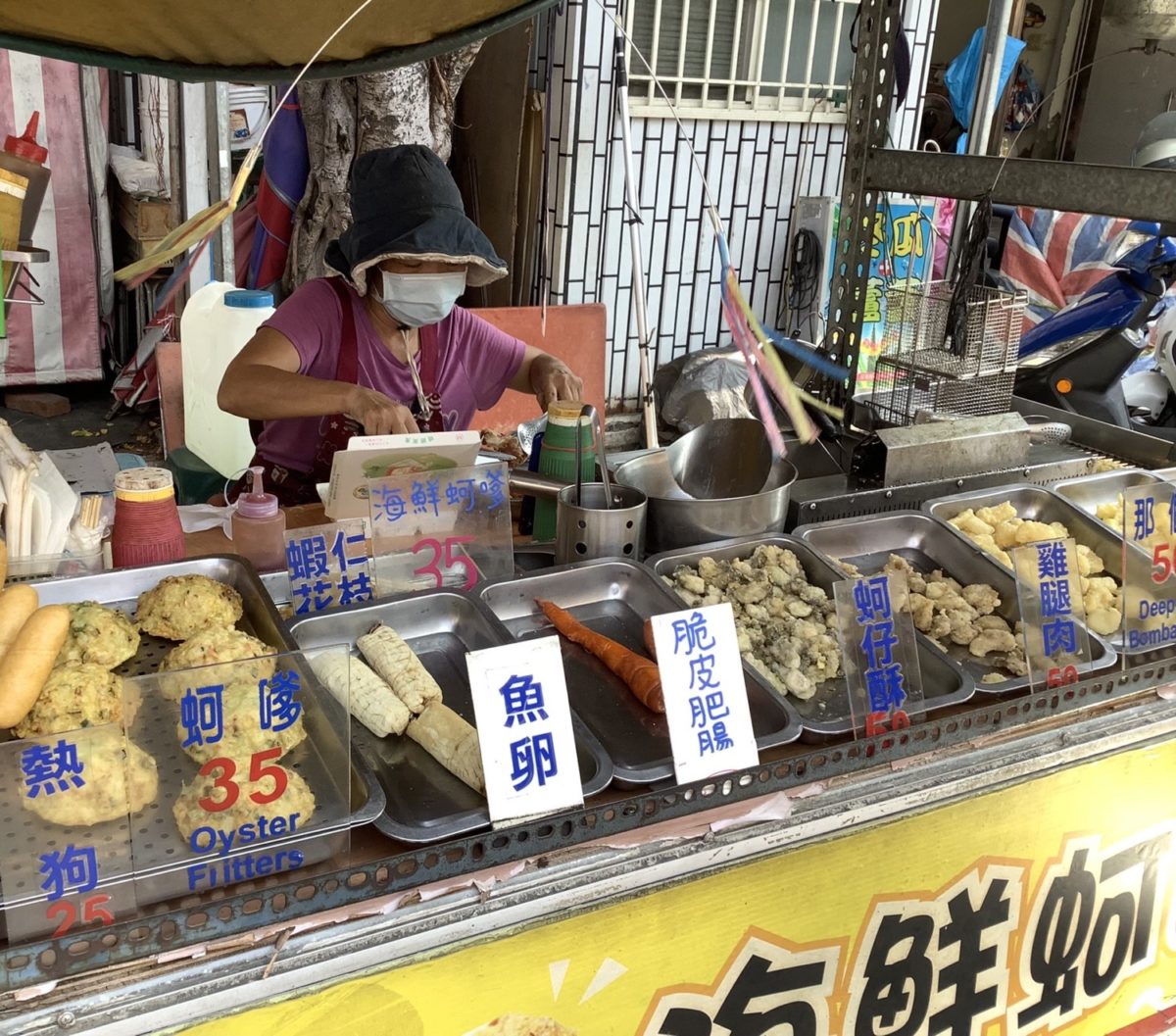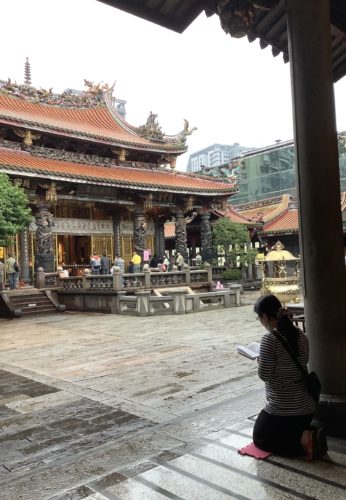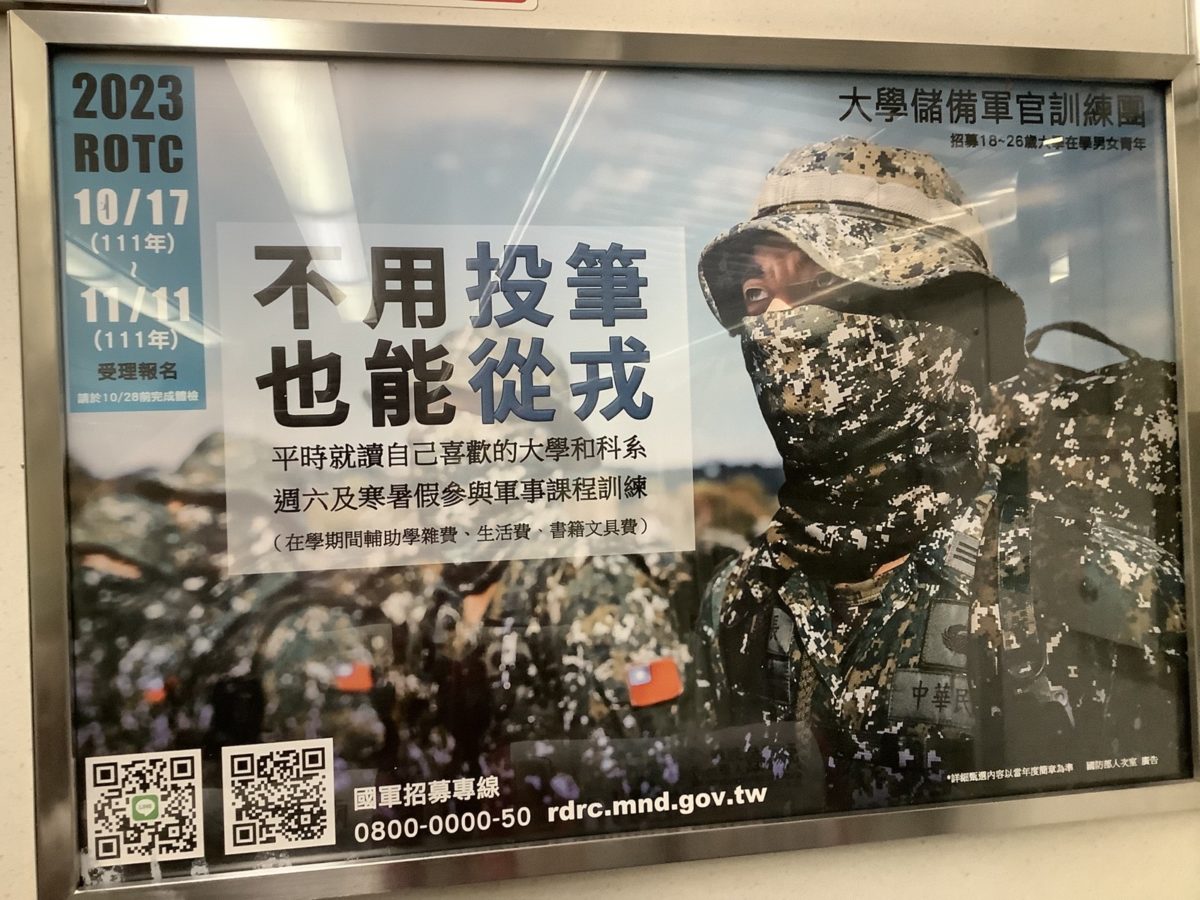After the KMT’s local elections victory, what’s next for Taiwan?
The Taiwanese party that favors closer ties to Beijing just won 13 of the 21 contested city mayor and county chief seats in Taiwan. The author, who recently visited Taiwan, muses on the future of this self-governed island.

When Taiwan’s local elections generated a landslide victory for the main opposition party, the Kuomintang (KMT), and led President Tsai Ing-wen (蔡英文 Cài Yīngwén) to resign from her position as the chairperson of the ruling Democratic Progressive Party (DPP) on Saturday, I was not surprised. At least, a fruit vendor in Taitung had prepared me for the result when I traveled to Taiwan last month.
“We had so many tourists from the mainland before and it was easy to make a living. Look at what’s happened now,” she said, sitting on her stool on a largely empty street by the beach. The downturn of tourism was mainly due to the pandemic, but she believed the bellicosity of the Tsai administration toward Beijing didn’t help. “We’ll tell the government what we think with our ballots,” she said.
The local elections were more about domestic issues, such as COVID measures and the economy. But during its campaigning, the DPP had portrayed itself as a fearless defender against oppression from Beijing, a strategy that has worked in the past against the KMT, which takes a more moderate stance toward its cross-strait neighbor. Some political analysts believe that the voters’ choice would more or less reflect the island’s position on Taiwan-China relations.
But if Beijing takes this latest result as a nod of support for reunification, it is wrong. If the voters have sent out any message, it is merely a “no” to the ratcheting up of tensions that was making war feel more realistic.

Growing up in China and having spent the last 20-some years in the U.S., I didn’t get a chance to see Hong Kong before it was changed by Beijing’s control, and I didn’t want to risk missing Taiwan. That’s why I lured my husband into a suffocating 15-hour flight with a mask on to go to Taiwan with me for our recent vacation. What struck me most was how the shadow of a possible war was ever-present, poking out of the surface of the seemingly normal life there, and how that normal life, despite some similarities, differed visibly from that in China.
For a generation born in China in the 1970s, myself included, the word “Taiwan” evokes complex memories. We have lived through the time when, in newspapers, what often followed references to “Taiwanese” transited from “spies like dogs” to “blood is thicker than water.” We witnessed our older relatives and friends listen to the songs of the late Taiwanese pop singer Teresa Teng (邓丽君 Dèng Lìjūn), which were banned in China for their “bad influence.” But soon our own adolescence would be dominated by the songs of the boy band Little Tigers or the romance novels by Chiung Yao (瓊瑤 Qióng Yáo), all Taiwanese cultural icons who came to test waters in the newly opened mainland market.
The curtain of the 1970s was also raised by a series of protests by Taiwan and Hong Kong students in the U.S. (students from mainland China didn’t arrive to America en masse until a decade later). The protests were triggered by the U.S. government implying that Japan had the rights to administer the disputed Diaoyu Islands (also called the Senkaku Islands) in the East China Sea. The protesters held banners claiming the territory “belongs to Chinese people,” and “Chinese people are united.”
But with new generations born in Taiwan, and intensified oppression from Beijing at home and in Hong Kong, things are now rapidly changing. According to a survey by the National Chengchi University in Taiwan, the share of people in Taiwan who identify themselves only as “Taiwanese” has jumped from less than 20% in 1992 to more than 60% by June 2022, while those considering themselves only as “Chinese” dropped from 25.5% to 2.4%.
Even in the U.S., one can easily feel the shift. More and more Taiwanese immigrants and their offspring tell me they are happy to be called “Asian” or “Taiwanese American,” but not “Chinese.”

A few days after U.S. House Speaker Nancy Pelosi’s August visit to Taiwan, Huá Chūnyíng 华春莹, a spokesperson for China’s Foreign Ministry, boasted on Twitter about the dozens of Chinese dumpling and noodle restaurants in Taipei found on Baidu Map. “Palates don’t cheat. #Taiwan has always been a part of China,” she tweeted.
But once you are in Taiwan, you can’t help but noticing the Taiwan characteristics that are nowhere to be seen in the mainland, be it the well-preserved Japanese-style bathhouses and teahouses resulting from a half-century of Japanese occupation, or the campaign billboards peppering the streets in an election season. All of these elements tell stories of a history and political system of its own.
At the Amis Folk Center, an ethnographic museum in Taitung County, I watched some aboriginal music performers dancing together with their audience, all domestic Taiwanese tourists. Despite the grudges the aboriginal people may hold against the Han people who had robbed their land in history, they made a circle by holding hands in an amicable atmosphere and sang an aboriginal folk song called “The Love Song of Nalu Bay.” It was clear that they all belonged to the island.
I am familiar with the song, which went viral in China after an aboriginal singer from Taiwan named Vansalrang sang it at the Lunar New Year gala hosted by China Central Television in 1988. Still, I couldn’t help wondering if through all these years, other than being a lucrative market, has mainland China really had much of an influence on everyday life for Taiwanese?
Perhaps now more than ever, everyday life is overshadowed by an uncertain future. After Pelosi’s visit, China launched intense military drills around the island. President Joe Biden has said the country would defend Taiwan if China invades. China’s president, Xí Jìnpíng 习近平, emphasized at the Chinese Communist Party’s 20th Congress that the country won’t renounce the right to use force to take over Taiwan. While Biden and Xi may have shown their willingness to ease the tensions between the two countries at their meeting on November 14 — where Biden said his expectation was that a Chinese invasion of Taiwan “will not happen, it will not be attempted” — their conflicting positions on Taiwan are still on the forefront.

You don’t have to dig deep to see the disturbing currents under the placid normalcy in Taiwan, be it the military recruitment advertisements in subway cars or the newspaper headline telling you “armed forces prepared for attack.” When I brought up the topic of “the war” with Taiwanese people, I didn’t have to clarify what war I was talking about.
But different people seem to be venting their rants at different targets. A taxi driver in Taipei blamed Beijing for being too aggressive. The owner of a steamed buns stand in Tainan blamed the U.S. for pushing Beijing into a corner. Quite a few were like the fruit vendor in Taitung, blaming Tsai for opposing unification. A shoe seller in Kaohsiung blamed fellow Taiwanese for treating a possible war too lightly. His own mother, who was almost killed by a bomb during World War II, passed away last year at 92. “My generation has never encountered a war,” he said. “They don’t know how frightening it is.”
The owner of the AirBnB we stayed at said her friends have been talking about moving to other countries. “But all we have are here. It would be hard to restart our lives somewhere else,” she said. And the taxi driver in Taipei said he has nowhere to go because his job won’t provide him enough money to migrate.
But when I asked them whether they were frightened by the possibility of war, everyone agreed on one thing. As a seafood stand owner in Kaohsiung put it, “How would being frightened help us? We just cross our fingers for the peaceful days to last as long as possible.”
I was hoping that talking to Taiwan people could help me form firmer views on Taiwan issues. Indeed, it has obliterated them because I realized what I think doesn’t matter. Surely, the future of Taiwan should be decided only by the Taiwanese. Not by Beijing’s ambition, not by Washington’s calculations, and not by the views of anyone who won’t face any consequences.
Still, as an outsider who has fallen love with the island, there is at least one thing I can do: I can cross my fingers “for the peaceful days to last as long as possible.”





